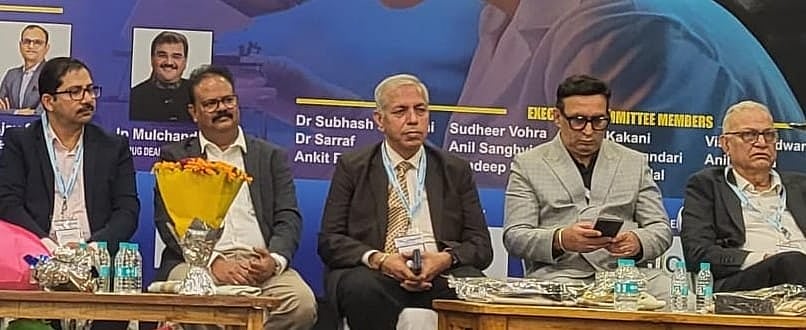Indore (Madhya Pradesh): In a major step towards sustainable energy, IIT Indore has developed an innovative catalyst that produces purified hydrogen from methanol at much lower temperatures than current methods. This breakthrough is expected to make hydrogen production more efficient, cost-effective, and eco-friendly, offering a significant boost to clean energy efforts.
Hydrogen is seen as a crucial alternative to fossil fuels in the shift to clean energy. However, traditional hydrogen production requires high temperatures, leading to high energy consumption and reduced environmental benefits.
The team at IIT Indore, led by Prof. Sanjay K. Singh from the Department of Chemistry, along with his PhD student Mahendra K. Awasthi, has developed a process that produces purified hydrogen gas from methanol at temperatures as low as <130°C, compared to conventional methods that require over 200°C.
This lower temperature process reduces energy use and operational costs, making hydrogen production more affordable for both industrial and commercial applications. The innovation has the potential to significantly impact the hydrogen economy, aligning with global efforts to cut carbon emissions and tackle climate change.
The technology, currently with Technology Readiness Level 4, has been proven effective under real-world conditions and has been granted a Patent. The team is in discussions with potential industry partners to bring this technology to the market.
Prof. Singh said “This catalyst can produce 1 kg of hydrogen from just 13 liters of methanol. It stands out from other methods due to its sustainability and lower cost. The process is expected to revolutionize hydrogen production and help in the wider adoption of hydrogen as a clean energy source.
The societal impact of this technology is significant. By enabling more efficient hydrogen production, it supports the global shift to cleaner energy sources, reduces dependence on fossil fuels, and helps lower greenhouse gas emissions. With the growing interest in methanol as a fuel blender (M30) in India, this process provides an alternative and sustainable use of methanol for hydrogen production.”
Importantly, the purified hydrogen produced by this method can be used directly in fuel cells for power generation, without the need for further purification to remove CO2, which is often an energy-intensive process.
As the world looks for ways to reduce carbon emissions and combat climate change, this low-temperature Co2-free hydrogen production technology from IIT Indore is a promising solution. With ongoing research to enhance technology and scale it for industrial use, it is poised to play a key role in the future of clean energy.











